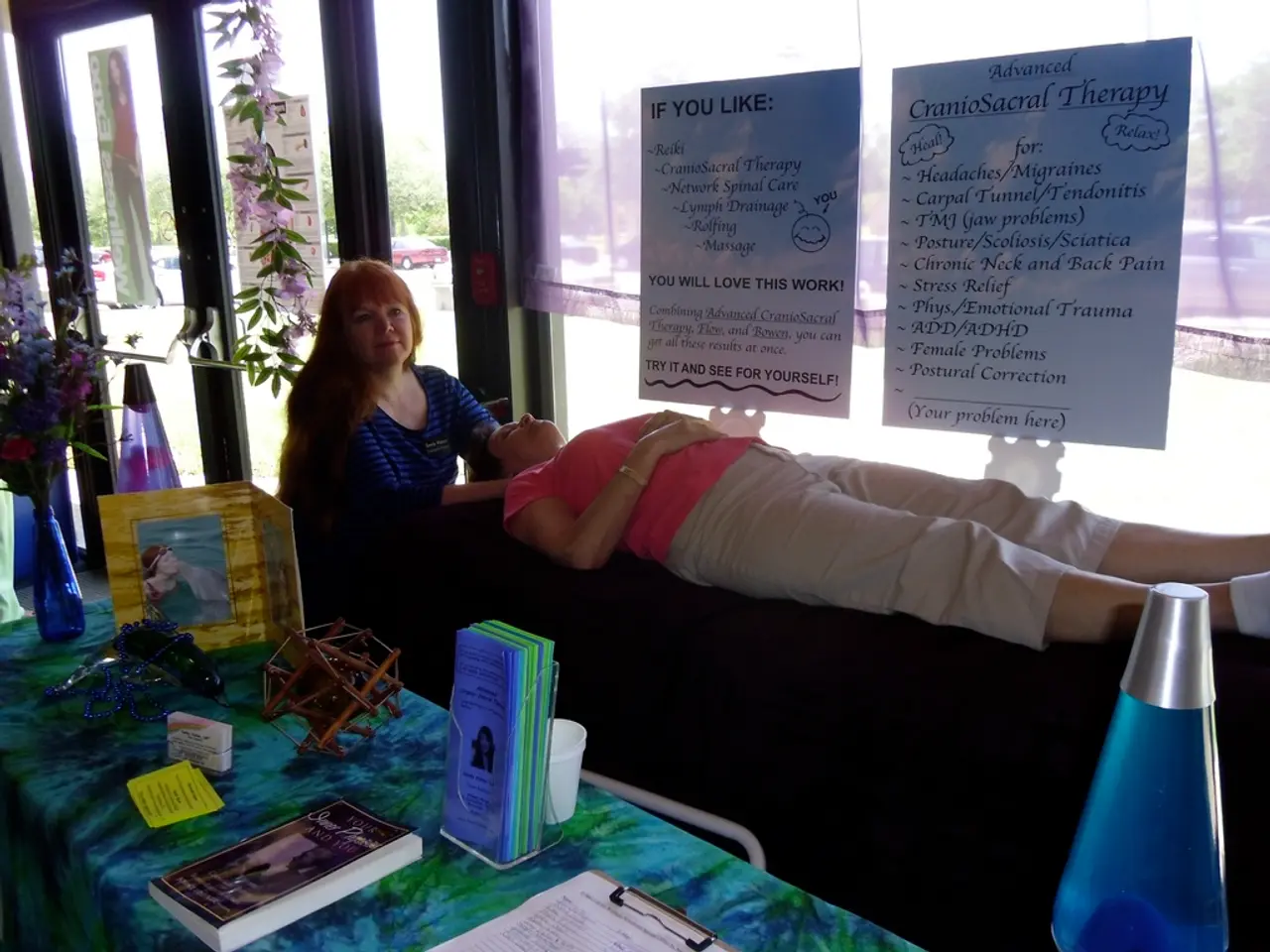Debunking the myth: Is Anxiety a Superpower, or is True Strength Hidden Elsewhere?
Living with Anxiety: Debunking Misconceptions and Seeking Help
Anxiety, a common mental health condition, is often misunderstood. Contrary to popular belief, it's more than just normal worry or stress.
Self-awareness is a powerful tool in managing anxiety, and mindfulness practices such as meditation and deep breathing exercises can help cultivate this awareness. Practicing mindfulness can involve activities like meditation, deep breathing exercises, or simply paying attention to the present moment during daily activities.
Journaling can be a helpful tool for self-reflection and gaining insight into one's anxiety patterns. Lifestyle changes such as regular exercise, healthy eating, and stress management techniques can also play a significant role in managing anxiety.
However, there are common misconceptions about living with anxiety. One such misconception is that everyone’s anxiety is just normal stress everyone experiences. In reality, anxiety disorders involve excessive, persistent worry or fear that significantly disrupt daily life and are not easily controllable.
Another misconception is that anxiety and obsessive-compulsive disorder (OCD) are the same or that anxiety symptoms always indicate an anxiety disorder. OCD, however, has distinct compulsions and obsessions requiring different treatments. This confusion can lead to ineffective treatment and worsened outcomes.
Panic attacks are often thought to be just extreme stress, but panic disorder panic attacks include specific acute and intense fear episodes with physical symptoms that are different from general anxiety or stress responses.
The reality about living with anxiety is that normal anxiety is a natural human emotion meant to keep people alert to potential danger, resolving when the stressor is gone. Anxiety disorders, in contrast, involve a dysregulated response where anxiety becomes overwhelming, persistent (lasting months or more), and causes difficulty in functioning like working, sleeping, or socializing.
Key symptoms of anxiety disorders include excessive worry that is difficult to control, physical symptoms such as restlessness, fatigue, or sleep problems, and avoidance of activities due to fear or stress. Living with anxiety often means managing these symptoms through therapy, mindfulness, or other supports, as untreated anxiety disorders can lead to distress and impairment.
Seeking professional help is essential for managing anxiety effectively. A mental health professional can provide a diagnosis, develop a treatment plan, and offer support throughout the recovery process. Medication, such as selective serotonin reuptake inhibitors (SSRIs), can be prescribed to help regulate brain chemistry and reduce anxiety symptoms. Therapy, such as cognitive-behavioral therapy (CBT), can help individuals identify and challenge negative thought patterns and develop coping strategies for managing anxiety.
Embracing one's true superpowers of strength and courage is important for overcoming anxiety and living a fulfilling life. Remember, understanding and managing anxiety is a journey, and seeking help is a brave step towards a better life.
- Developing a resilient mindset can enhance productivity and contribute to well-being in those living with anxiety, as it equips individuals with the ability to cope with stressors more effectively.
- Incorporating science-backed health-and-wellness practices, such as regular exercise and meditation, can support mental health alongside professional treatment for anxiety disorders.
- Seeking help from mental health professionals is crucial for addressing anxiety effectively, as they can deliver targeted treatments like cognitive-behavioral therapy (CBT) and selective serotonin reuptake inhibitors (SSRIs) to alleviate anxiety symptoms and improve overall mental health.




